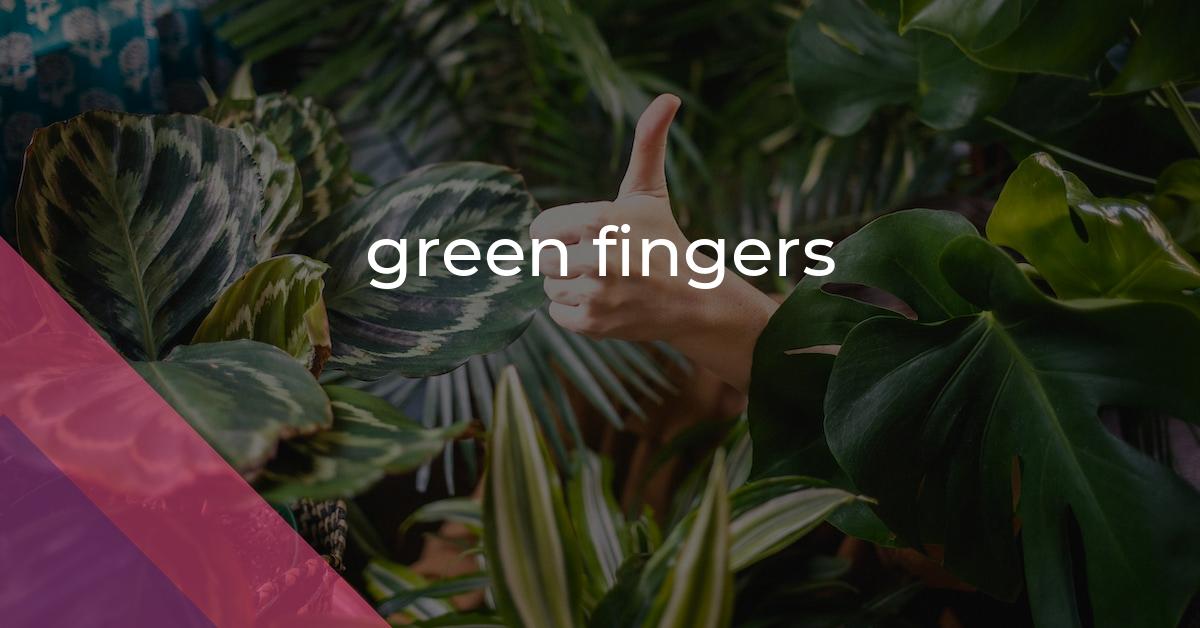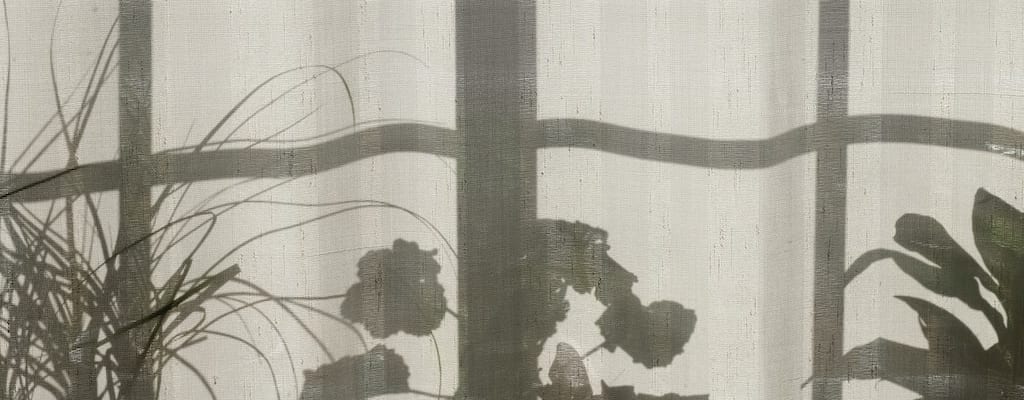green fingers: Idiom Meaning and Origin
What does ‘green fingers’ mean?
Green fingers: This idiom refers to a person's ability or skill in gardening, often implying that they have a natural talent for making plants grow and thrive.

Idiom Explorer
The idiom "keep one's fingers crossed" means to hope for good luck or success. It is often used when someone is wishing for a positive outcome or outcome of an event.
The idiom "jill of all trades" refers to a person who has a variety of skills or can perform multiple tasks competently.
The idiom "in the green tree … in the dry" means being in a favorable or advantageous situation versus being in a difficult situation or unfavorable conditions.
The idiom "in the flower of one's youth" refers to the period of time when someone is young and at their peak of physical and mental abilities. It implies a sense of beauty, vitality, and freshness commonly associated with flowers.
The idiom "hear the grass grow" means to have an exceptional ability to perceive or sense even the faintest or most subtle things, often used to describe someone with a keen sense of observation or intuition.
The idiom "have a way with" means to possess a natural skill or talent for dealing with or influencing others in a particular area or situation.
The idiom "have a head for" means to be naturally skilled or talented in a particular area or to have a knack for something.
The idiom "grow on" means to begin to like or enjoy something or someone gradually over time.
Surprising Magic Explained
The idiom "green fingers" is a widely used expression in British English to describe someone who has a natural talent or ability in gardening. These individuals are able to cultivate and nurture plants successfully, making them grow well. Having green fingers is often seen as a commendable skill, and it is associated with a deep affinity and understanding of nature and its mechanisms. The term "green fingers" reinforces the idea that the person possessing this talent has a special ability to foster and promote life in plants. The color green, traditionally associated with nature, growth, and vitality, acts as a symbol of fertility, life, and prosperity here.
The exact origin of the idiom is uncertain, but it is widely believed to have emerged during the Victorian era in Britain. This was a time when gardening and horticulture gained popularity among the upper classes. The idiom's popularity grew in parallel to the increasing interest in gardening and the admiration for those who excelled at caring for plants. Although there is no concrete evidence linking the idiom to any specific individual or event, its usage and contextual significance suggest that it developed organically within the gardening community during this period.
The idiom "green fingers" has a counterpart in American English, known as "green thumb." While both idioms convey the same meaning, they differ in terms of regional usage. "Green thumb" is primarily used in American English, while "green fingers" remains more prevalent in British English. Despite the slight linguistic variation, both idioms capture the shared idea of talent and proficiency in gardening, reflecting the cultural and linguistic differences between the two countries.
A related idiom is "brown thumb," which is the opposite of having green fingers. It is used to describe someone who has a poor ability to care for plants. Instead of making plants grow well, individuals with a brown thumb often inadvertently harm or kill plants. This idiom serves as a lighthearted and humorous way to acknowledge one's lack of skill in gardening. While the concept of brown thumb is not as widely recognized as green fingers or green thumb, it serves as a playful counterpart to these idioms.
Another idiom related to green fingers is "green with envy." This phrase describes a feeling of intense jealousy or covetousness towards someone else's success or possessions. In the context of green fingers, it can be used to emphasize the admiration and envy felt by those who lack gardening skills towards those who possess the talent and ability to make plants flourish. Green with envy encapsulates the awe and envy experienced by individuals who appreciate the beauty and fruitful results of a skilled gardener's work.
Expanding beyond the realm of gardening, another related idiom is "in the green tree ... in the dry." This phrase contrasts the state of being in a leafy, lush, and fertile area ("in the green tree") with being in a barren, dry, and desolate region ("in the dry"). It can be used metaphorically to describe the stark difference between a favorable and unfavorable situation. In the context of green fingers, this idiom can be employed to highlight the importance of proper care and cultivation in maintaining the health and vibrancy of plants. It serves as a reminder that neglecting or mistreating plants can result in their withering and decline, akin to being "in the dry." Conversely, caring for and nourishing plants efficiently allows them to thrive and succeed, comparable to being "in the green tree."
To recap, green fingers, or the ability to make plants grow well, is a widely recognized idiom in British English. It symbolizes a natural talent and understanding of gardening, and its popularity grew in conjunction with the flourishing of gardening as a pastime during the Victorian era. The American English equivalent of green fingers is green thumb, with both idioms representing talent and proficiency in gardening. A playful counterpart to green fingers is brown thumb, which describes a lack of skill in caring for plants. The idiom green with envy captures the admiration and jealousy felt by those who appreciate the successes of skilled gardeners. Lastly, the idiom "in the green tree ... in the dry" underscores the contrast between favorable and unfavorable conditions within the realm of plant care. These idioms serve as colorful expressions that enhance our understanding and appreciation of the art of gardening and the nurturing of nature's beauty.
Example usage
Examples of how the idiom "green fingers" can be used in a sentence:
- She has green fingers and all of her plants thrive beautifully.
- I don't have green fingers; every plant I try to take care of ends up dying.
- His grandparents had green fingers and maintained a stunning garden.
More "Gardening" idioms



